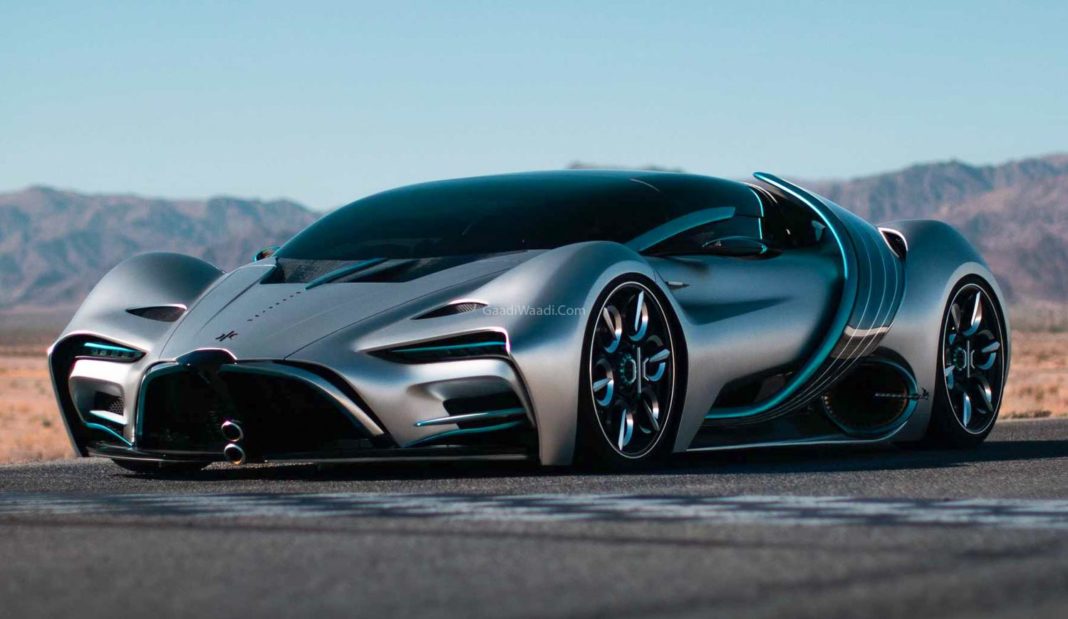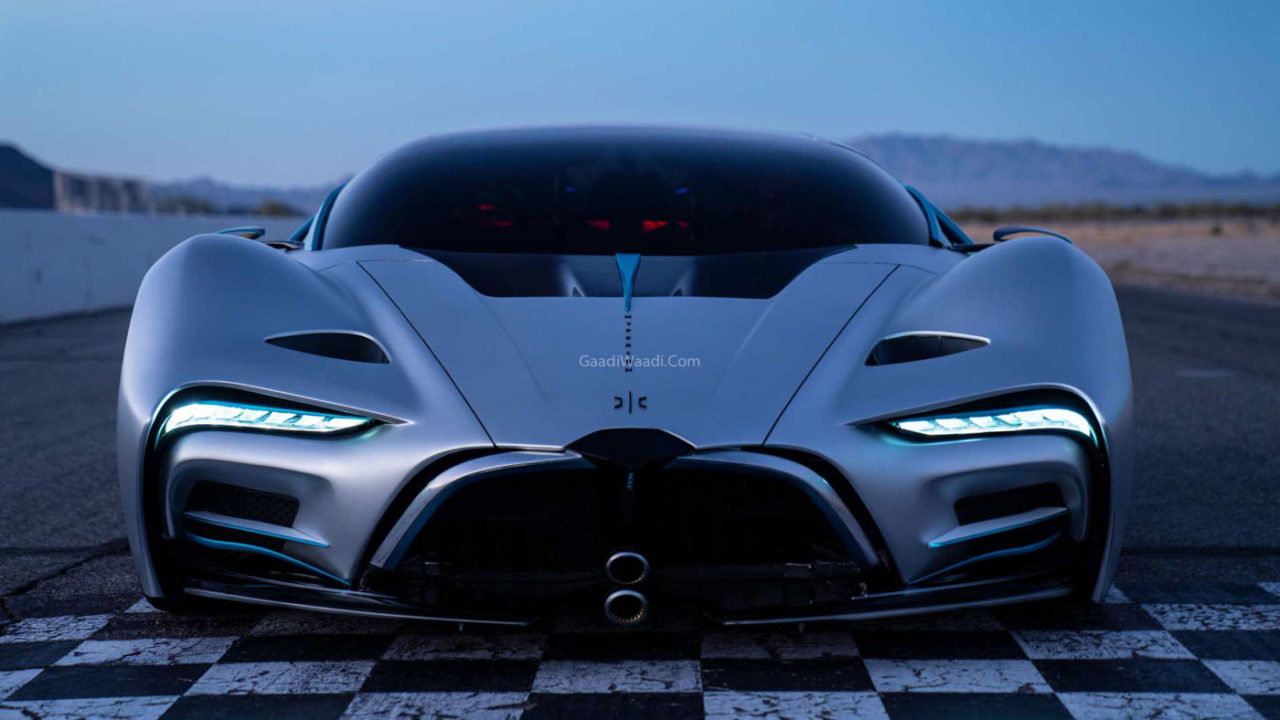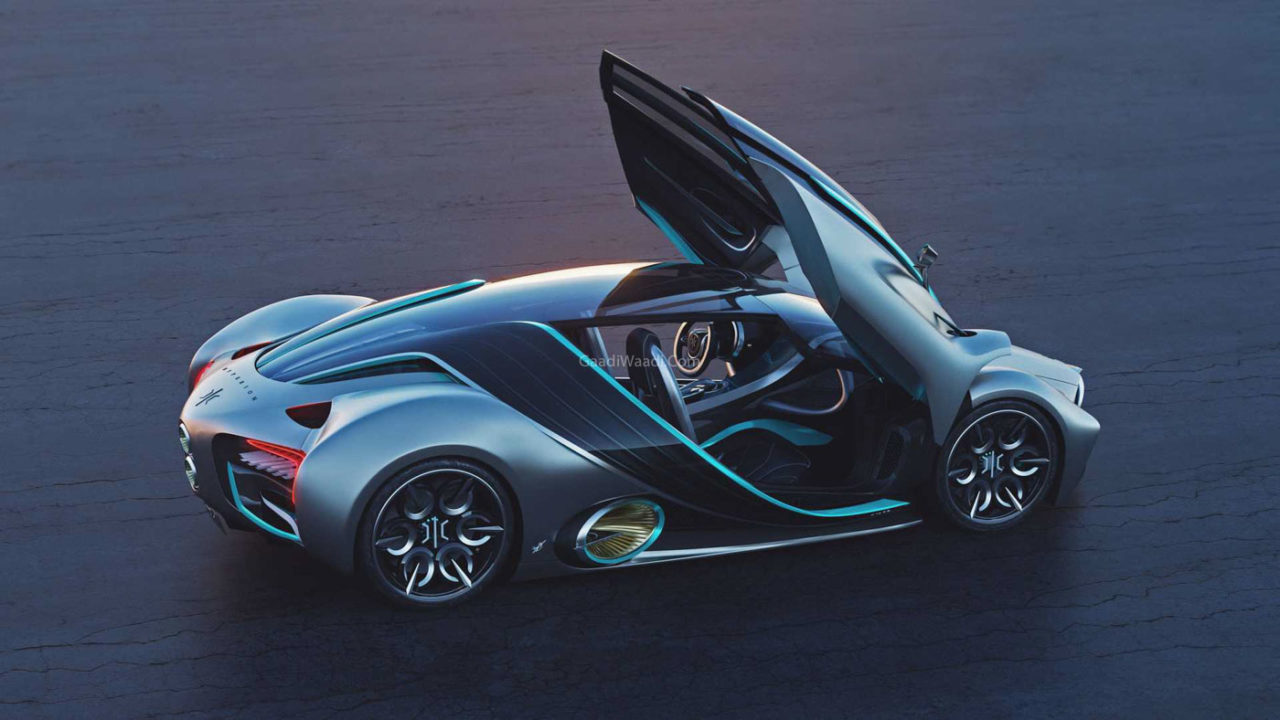
Hyperion claims that the XP-1 hydrogen-electric supercar will have a range in the excess of 1000 miles, and that it will do 0-60 mph in an astounding time of 2.2 seconds
While mass production of hydrogen fuel cell cars is still a thing of the future, Hyperion has already come up with a hydrogen-electric supercar called XP-1, that has been finally revealed after months of teasers. While the XP-1 is not in its production-ready form yet, the specs are quite promising.
The hydrogen fuel cell module on the XP-1 generates electric power that sends powers to all four wheels with the help of a three-speed gearbox. This powertrain will help the car sprint from 0 to 60 mph or 96 kmph in less than 2.2 seconds, before topping out at 221 mph (356 kmph).
If the power figures aren’t enough, Hyperion claims that the XP-1 will be able to go 1,000 miles (1609 km) before you need to refuel. In addition, the supercar comes with technology that makes refueling hydrogen easier, and the company claims that a top-up wouldn’t take more than five minutes.
The XP-1 has been built on a carbon-titanium monocoque chassis with titanium-reinforced composting bodywork. The tanks where the hydrogen will be stored are built from carbon fiber as well, since the manufacturer’s main aim is to keep the supercar light-weight. Hyperion has said that the car weighs just 2,275 lbs, which is about 1032 kg only.
The XP-1 has a smooth styling, which is not only pleasing to look at, but is also functional. The two flying buttresses seen behind the doors are there for active aerodynamic purposes that improve high-speed cornering. These elements also serve another function since they also work as solar panels that they function as solar panels which can articulate to follow the trajectory of the sun.
Hyperion has used some of the world’s most advanced technology while building the XP-1, which consists of technologies sourced from world’s leading aeronautical, engineering companies, as well as space agencies, including NASA. The company also plans to “revolutionize the hydrogen refueling industry”, since refueling infrastructure for hydrogen fuel cell vehicles is still lackluster.
Hyperion aims to build 300 units of the XP-1, with the production slated to commence in 2022. The company is yet to reveal any information about the supercar’s price.









